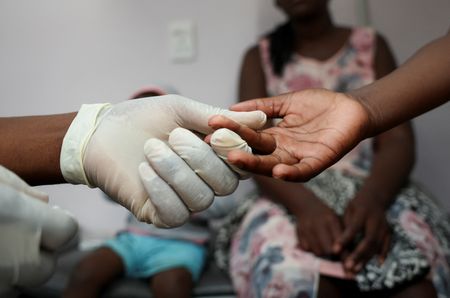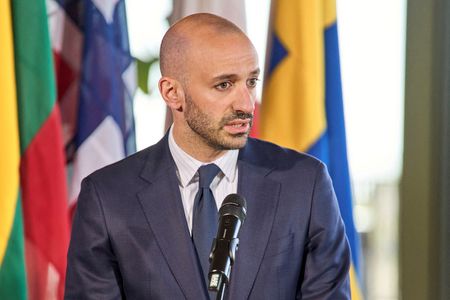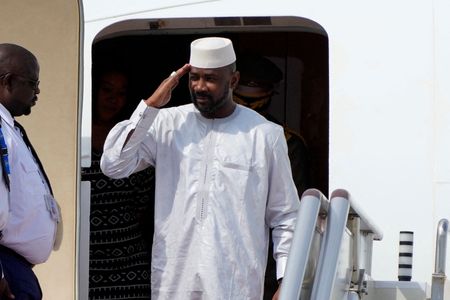LIBREVILLE (Reuters) – The wife and son of Gabon’s former president have been transferred from prison to house arrest, though it is unclear when they might stand trial for alleged financial crimes, two sources told Reuters.
Sylvia Bongo, 62, and Nourredin Bongo, 33, were taken into custody shortly after Ali Bongo was toppled in a military coup more than a year and a half ago. They had most recently been held in basement cells in the presidential palace in Libreville, one of the sources said.
The transfer to house arrest – where they have been reunited with Ali Bongo – came on May 9 after pressure from African Union officials for their release. On May 1, one of the sources said, they had been hospitalized after staging a hunger strike.
Sylvia Bongo and Nourredin Bongo stand accused of crimes including embezzlement and money laundering. Their supporters have said they were tortured in custody.
In an interview with Radio France Internationale in March, President Brice Oligui Nguema denied they had been tortured and said their trials would go ahead.
Gabon’s communications minister, Paul-Marie Gondjout, did not respond to a request for comment on Wednesday.
Nguema was elected to seven-year term last month with nearly 95% of the vote and sworn into office on May 3.
In a meeting on April 30, the African Union’s Peace and Security Council lifted its suspension of Gabon, which was imposed after the coup.
In a statement, the council called for the immediate release of Ali Bongo’s family and for guarantees that their rights and health would be protected.
A representative for the family said Sylvia and Nourredin Bongo would not make a public comment.
“This house arrest, which their lawyers have long been calling for, cannot be seen as clemency on the part of a government that has violated all the rights of the defence for more than 20 months,” said Alain Claude Bilie By Nze, a former prime minister under Bongo who ran in the election against Nguema.
“However, it is to be hoped that the trial, if it takes place, will respect all the legal guarantees of impartiality, fairness and transparency,” he said.
(Reporting by Gerauds Wilfried Obangome and Robbie Corey-Boulet; Editing by Bill Berkrot)







